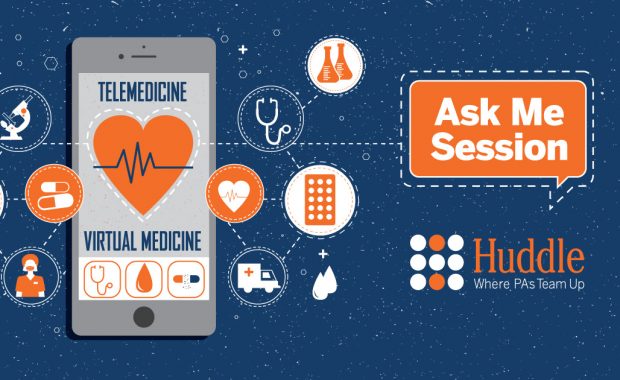Career Resources

PA JobSource
PA JobSource is an interactive, map-based career exploration platform that is available exclusively for AAPA members. Explore the map and connect with virtually every PA employer in the United States today.
PA Scope of Practice
PAs are proven and integral members of the U.S. healthcare system. But what exactly do PAs do? And who decides? The boundaries of each PA’s scope of practice are determined by these parameters: education and experience; state law; policies of employers and facilities, and the needs of the patients.
Specialty Transitions: Researching the Best Options for You
PA Career Coach Jennifer Hohman frequently works with clients who are considering changing their specialty. Find out how she helps her clients find the right specialty for them through careful self-assessment, research, and networking.
Practice Partnership and Ownership
Owning a practice or other healthcare business is complex and can present special challenges for PAs. The following information can help you decide whether practice partnership or ownership is right for you.
Payer Reimbursement Policies for PAs
Explanation of third-party reimbursement for PAs.
An In-Depth Guide to PA Recruiting
Learn about the remarkable contributions that PAs make every day and gain insights into how you can recruit highly qualified PAs for your open positions. Read interviews from expert sources on what matters in PA recruitment.

How to Tailor Your Job Application for a Specialty Transition
Any successful career transition is rooted in self-knowledge, curiosity and a zestful movement towards what inspires you as a clinician. PAs have unique career journeys given their ability to navigate specialty transitions that can be both exciting and daunting.

AOP Guide
Explore a new career direction or specialty with this collection of AAPA and partner resources, salary data, and CME on various practice areas, including Administration, Dermatology, Education, Emergency Medicine, Family Medicine, Hospital Medicine, Internal Medicine, Orthopaedic Surgery, Telemedicine, and Urgent Care.

You’ve Been Hacked! Lessons Learned from a Cyber Breach
A small Texas practice’s electronic health records were hacked and held for ransom. For days, while pen and paper kept the practice going, a PA wondered whether she’d face a financial hit from the cyber breach.

Virtual Health PAs Share Insight to Rapidly Growing Healthcare Space
Huddle’s latest Ask Me session recruited virtual medicine PAs Desmond Watt and Amanda Shelley to engage in field-related discussions with AAPA members. Virtual health, or telemedicine, is an emerging healthcare space that PAs have the opportunity to not only join, but lead.

Sponsored
Why I Changed Specialties as a PA
One of the major advantages of becoming a PA is that it is relatively easy to change from one specialty to another without the need for new certification. More than 50% of PAs will change specialties during their careers, according to AAPA’s Salary Report.
PAs and Team Practice
A summary of PAs in team-oriented care models.

What is a PA?
What is a PA (physician associate/physician assistant)? PAs are licensed clinicians who practice medicine in every specialty and setting.
What You Always Wanted to Know About EMPAs, But Were Afraid to Ask
In this article written for the American College of Osteopathic Emergency Physicians, the Society of Emergency Medicine Physician Assistants (SEMPA) provides a brief history of emergency medicine PAs (EMPA), gives a primer on PA training and discusses EMPA onboarding and utilization.

